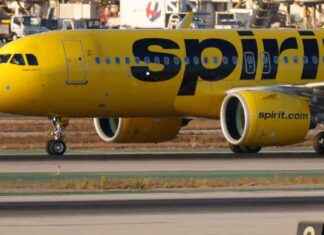The Flower Show at Homestead Gardens has been a springtime tradition at the sprawling garden center for the past three decades.
The 2017 Flower Show: Modern Homesteading opened Thursday evening and continues through March 26, at 743 West Central Ave. in Davidsonville, with a variety of displays and events like seminars devoted to raising orchids, roses and succulents.
Typical of Homestead Gardens, the staff doesn’t just stack up pretty piles of potted plants. This year’s event, Modern Homesteading, is a play on the company’s name and a theme which echoed throughout a "Main Street" of displays.
Nathan Powers, the company’s horticulturist and educational program manager, previously director of horticulture at Historic London Town and Gardens, aided by carpenter David Kline and special projects coordinator Erin DeHaas, created a gardening "time tunnel" down an imaginary stone-paved street. The scene spans more than 107 years, beginning with a farmers market display and ending in the future with a diminutive tiny house.
"We used over 50,000 plants in our displays this year," said Brian Riddle, owner of Homestead Gardens.
The future, as Powers envisions it, will mean many people will opt to live in tiny houses, make regular use of composters to reduce landfills and enrich their gardens, and will often create additional space for gardening with giant, hanging, tiered metal plant containers and raised garden beds. Broken bird baths or non-working fountains will be repurposed as raised beds.
2017 Homestead Gardens Spring Flower Show runs from March 17th-26th, showcasing flower displays incorporating ornamental flowers with edibles, and displays showing sustainable living.
If they cultivate chickens at home, the chicken coop with sport a green roof, lush with salad greens. Attached to the wheeled tiny house will be even tinier homes for bees and butterflies — to encourage pollination of the gardens.
Where the garden is not watered as frequently, drought-tolerant succulent plants like semper vivums or sedums will reign. Peanuts will be planted to introduce needed nitrogen to the soil. Raising plants that are just pretty will not be as popular as "edible landscapes."
Speaking of chickens, two-thirds of Homestead’s stock of cute, new, fuzzy hatchlings were sold on Thursday. More baby chicks are on the way.
Powers pointed out people are already purchasing the tools and equipment to raise plants year-round, some to raise "microgreens" — nutrient-dense plants that are harvested while young and at their peak. One section of the complex, managed by Kyle Marsh, is filled with composting equipment, grow lamps, indoor growing containers and canvas grow-sheds.
Riddle said, "My dad, Don Riddle, came up with the idea for the Flower Show. He was inspired by garden centers and flower shows elsewhere. This spring preview is all about inspiration and getting people excited about the season."
To evoke the moods of various eras in the Main Street vignettes, unique props from the past were utilized.
One of the Riddle family’s old pickup trucks, restored to mint condition, was on display, laden with flowers reminiscent of pre-World War II Maryland. It is a shiny 1939 Ford with 302 horsepower under the hood and sharp-looking sideboards. Across the street from the truck is a "Victory Garden," circa 1930. On the facade of a set built to resemble a house front is a series of old posters from that era.
Further down, a yard is decorated with pink flamingos. A fishnet-wearing leg lamp, similar to the one central to the 1983 movie "A Christmas Story" about a family in the early 1940s, is visible through a window. On the grass, flowering plants spilled from a red Radio Flyer wagon.
Further down the street, is a current day scene. Nearby, is a vignette advocating for "pollinator gardens," brimming with plants friendly to pollinating creatures including bees, varieties of butterflies, bats and hummingbirds.
"Instead of mulch," Powers said, "plant greens that are sustainable." He said Homestead had recently taken down some of its older greenhouses and had put a cover crop on the exposed soil to avoid water runoff out in its fields. Shortly, the staff will be planting a large, demonstration pollinator garden where the greenhouses once stood.
Powers pointed out the distance from the sustainable farming utilized by the fictitious 1910 farmer to the future tiny house resident growing a vegetable garden and enjoying a self-sufficient lifestyle was not too far or radical.
"The more things change, the more they stay the same."
For details about Flower Show classes, workshops and more, visit www.homesteadgardens.com.
Our editors found this article on this site using Google and regenerated it for our readers.





